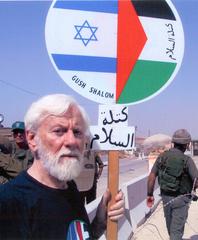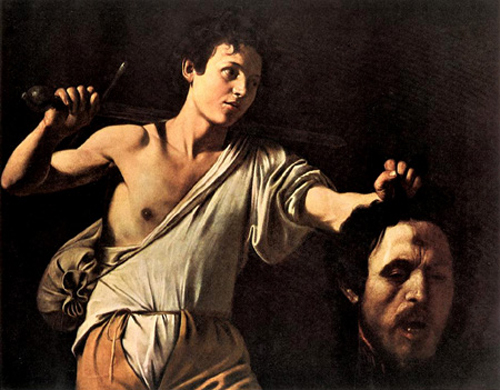For the Arab reader or, even, for someone informed about the issues and the history of the region, prof. Rashid Khalidi's article at The New York Times, (Jan. 07, 2009) does not add much, I have to admit. But, by putting down some basics, in lines and paragraphs, it shows the total war with windmills that the Arab intellectuals, organic intellectuals (to mention Gramsci here) and everyone in reality, have to go through in this land of negotiating about the facts, the meaning and the impression. Today, I was watching how the BBC presented the demonstration of some Israelis and Jews in London, protesting for the "condition of fear to which the Israelis are subjected, due to the terrorists in Gaza". I remind that the "fearful" lost up to now 13 people, most of whom, invading soldiers, while the "terrorist" (legitimate) population of Gaza lost 850 (most of whom civilians, women and children). Some have the right to be in a condition of fear, while others have to experience fear in its maximum, combined with loss, deprivation and despair. The article goes as follows:
NEARLY everything you’ve been led to believe about Gaza is wrong. Below are a few essential points that seem to be missing from the conversation, much of which has taken place in the press, about Israel’s attack on the Gaza Strip.

Ronald J. Cala II
THE GAZANS Most of the people living in Gaza are not there by choice. The majority of the 1.5 million people crammed into the roughly 140 square miles of the Gaza Strip belong to families that came from towns and villages outside Gaza like Ashkelon and Beersheba. They were driven to Gaza by the Israeli Army in 1948.
THE OCCUPATION The Gazans have lived under Israeli occupation since the Six-Day War in 1967. Israel is still widely considered to be an occupying power, even though it removed its troops and settlers from the strip in 2005. Israel still controls access to the area, imports and exports, and the movement of people in and out. Israel has control over Gaza’s air space and sea coast, and its forces enter the area at will. As the occupying power, Israel has the responsibility under the Fourth Geneva Convention to see to the welfare of the civilian population of the Gaza Strip.
THE BLOCKADE Israel’s blockade of the strip, with the support of the United States and the European Union, has grown increasingly stringent since Hamas won the Palestinian Legislative Council elections in January 2006. Fuel, electricity, imports, exports and the movement of people in and out of the Strip have been slowly choked off, leading to life-threatening problems of sanitation, health, water supply and transportation.
The blockade has subjected many to unemployment, penury and malnutrition. This amounts to the collective punishment — with the tacit support of the United States — of a civilian population for exercising its democratic rights.
THE CEASE-FIRE Lifting the blockade, along with a cessation of rocket fire, was one of the key terms of the June cease-fire between Israel and Hamas. This accord led to a reduction in rockets fired from Gaza from hundreds in May and June to a total of less than 20 in the subsequent four months (according to Israeli government figures). The cease-fire broke down when Israeli forces launched major air and ground attacks in early November; six Hamas operatives were reported killed.
WAR CRIMES The targeting of civilians, whether by Hamas or by Israel, is potentially a war crime. Every human life is precious. But the numbers speak for themselves: Nearly 700 Palestinians, most of them civilians, have been killed since the conflict broke out at the end of last year. In contrast, there have been around a dozen Israelis killed, many of them soldiers. Negotiation is a much more effective way to deal with rockets and other forms of violence. This might have been able to happen had Israel fulfilled the terms of the June cease-fire and lifted its blockade of the Gaza Strip.
This war on the people of Gaza isn’t really about rockets. Nor is it about “restoring Israel’s deterrence,” as the Israeli press might have you believe. Far more revealing are the words of Moshe Yaalon, then the Israeli Defense Forces chief of staff, in 2002: “The Palestinians must be made to understand in the deepest recesses of their consciousness that they are a defeated people.”
Rashid Khalidi, a professor of Arab studies at Columbia, is the author of the forthcoming “Sowing Crisis: The Cold War and American Dominance in the Middle East."
Για την ελληνική απόδοση του κειμένου βλέπε
εδώLabels: Palestine, Παλαιστίνη, Το ελεύθερον
 οφείλω να γράψω για τα ακόλουθα:
οφείλω να γράψω για τα ακόλουθα:
















